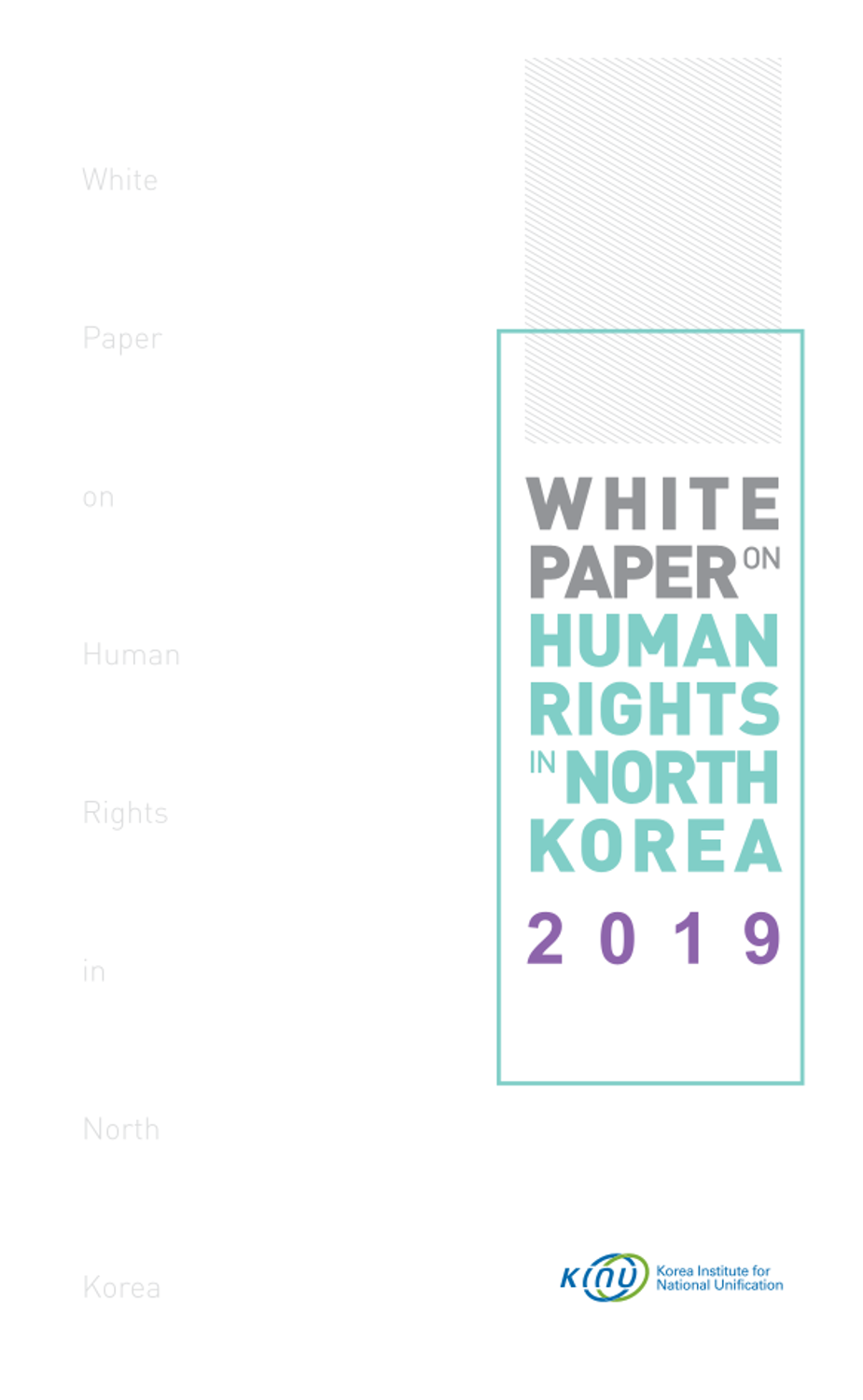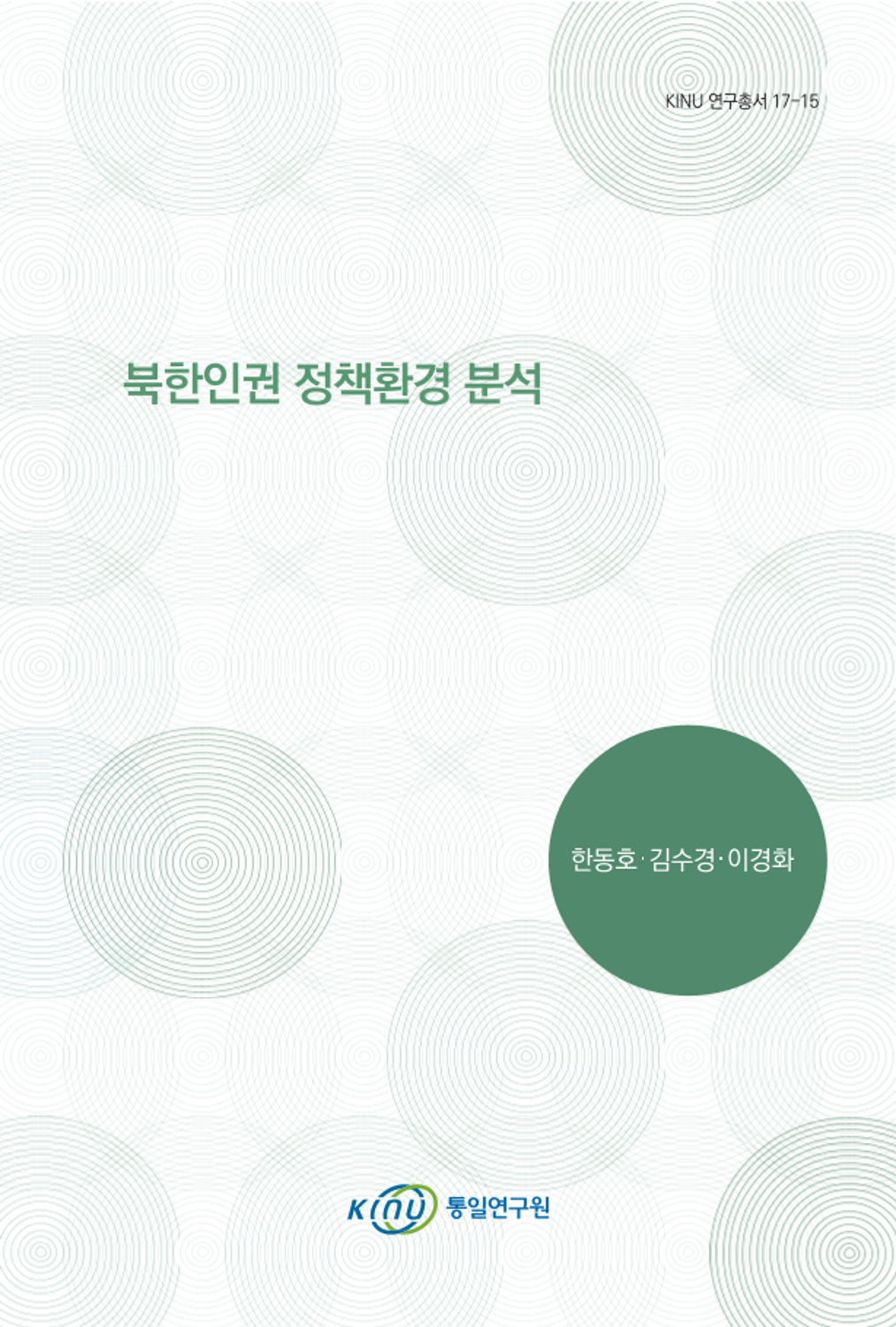
연구원발간물
White Paper on Human Rights in North Korea 2019
- 발행사항
- Seoul: Korea Institute for National Unification, 2019
- 형태사항
- 579 p.; 23 cm
- ISBN
- 978898479962-2
- 청구기호
- 000 인권19-02
소장정보
| 위치 | 등록번호 | 청구기호 / 출력 | 상태 | 반납예정일 |
|---|---|---|---|---|
이용 가능 (2) | ||||
| 1자료실 | G0017285 | 대출가능 | - | |
| 1자료실 | G0017286 | 대출가능 | - | |
이용 가능 (2)
- 등록번호
- G0017285
- 상태/반납예정일
- 대출가능
- -
- 위치/청구기호(출력)
- 1자료실
- 등록번호
- G0017286
- 상태/반납예정일
- 대출가능
- -
- 위치/청구기호(출력)
- 1자료실
책 소개
Summary
PartⅠ: Purpose and Research Methodology
The Korea Institute for National Unification has annually published the White Paper on Human Rights in North Korea since 1996 to raise awareness on North Korean human rights issues at home and abroad, and provide basic materials by objectively surveying and analyzing the North Korean human rights situation. The White Paper on Human Rights in North Korea 2019 incorporates information from in-depth interviews with 135 North Korean defectors who had stayed in North Korea until most recently before entering South Korea. These interviewees were selected with consideration to their demographic and social backgrounds. This White Paper 2019 looks into human rights situations in the North in the following parts: the Reality of Civil and Political Rights, the Reality of Economic, Social, and Cultural Rights, Vulnerable Groups, and Major Issues.
Part Ⅱ: The Reality of Civil and Political Rights
The right to life is still not properly protected in North Korea. Especially in the 2018 survey, there were cases collected that the death penalty was executed publicly for crimes such as watching and distributing South Korean recordings, drug trading, and rape which disrupt the socialist order. However, it appears that compared to the past, the number of public executions is decreasing. In fact, it appears that the residents are mobilized fewer times to execution sites. Still, it is not clear whether the actual number of public executions has decreased or the execution of disclosed death penalty or secret summary execution has increased.
In addition, there were testimonies on inhumane treatment such as torture in the process of investigating criminal cases. Especially, many North Korean defectors testified that they were under severe physical or mental torture when facing defection related investigations at the Ministry of State Security (MSS) located near the border regions.
Forced labor by the State constitutes a serious violation of human rights; for example, imposing labor training punishment for minor crimes, re-educational labor discipline according to the Administrative
Penalty Law and the People’s Security Enforcement Law, and forcing labor on people who are temporarily detained in holding centers (jipkyulso), and so on. Moreover, arbitrary or illegal arrests and detentions are still carried out in North Korea, and the Criminal Procedure Law does not have any provision related to informing the suspect of the reasons for his or her arrest and the facts of the charge. It also does not include a system to review the validity of a warrant by a judge. ...
목차
PartⅠ
Purpose and Research Methodology
PartⅡ
The Reality of Civil and Political Rights
PartⅢ
The Reality of Economic, Social, and Cultural Rights
PartⅣ
Vulnerable Groups
PartⅤ
Major Issues


